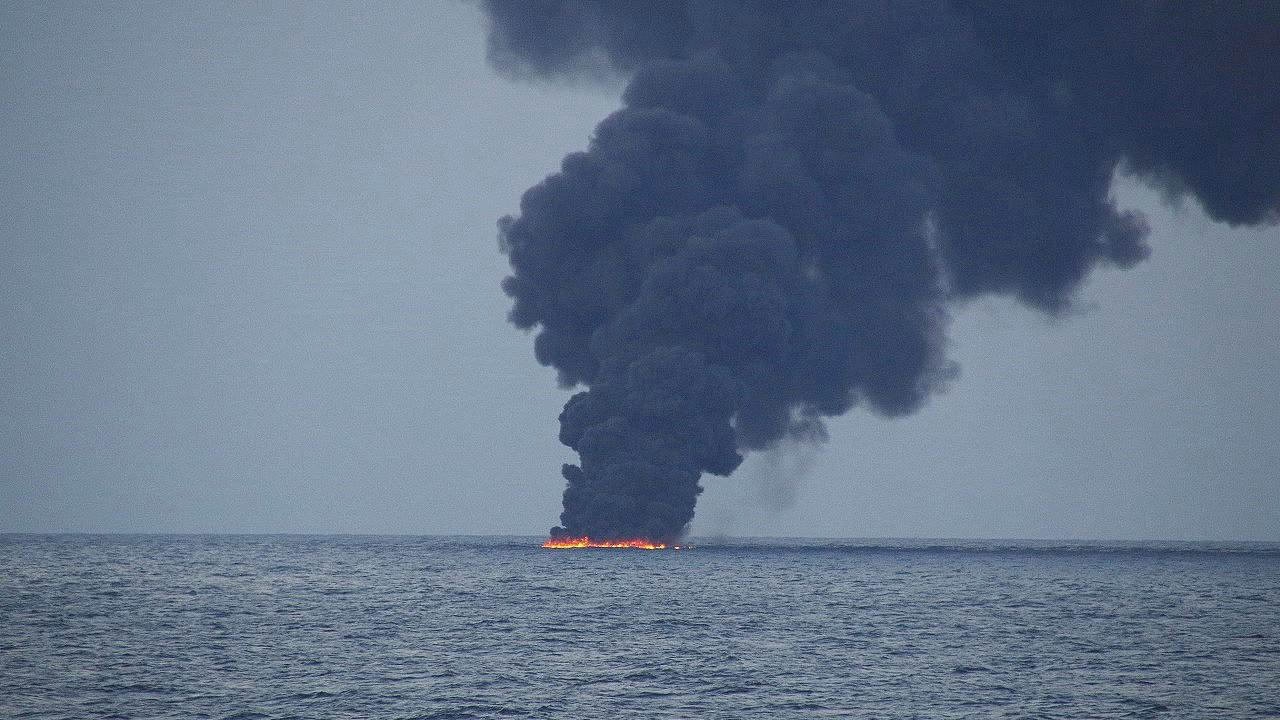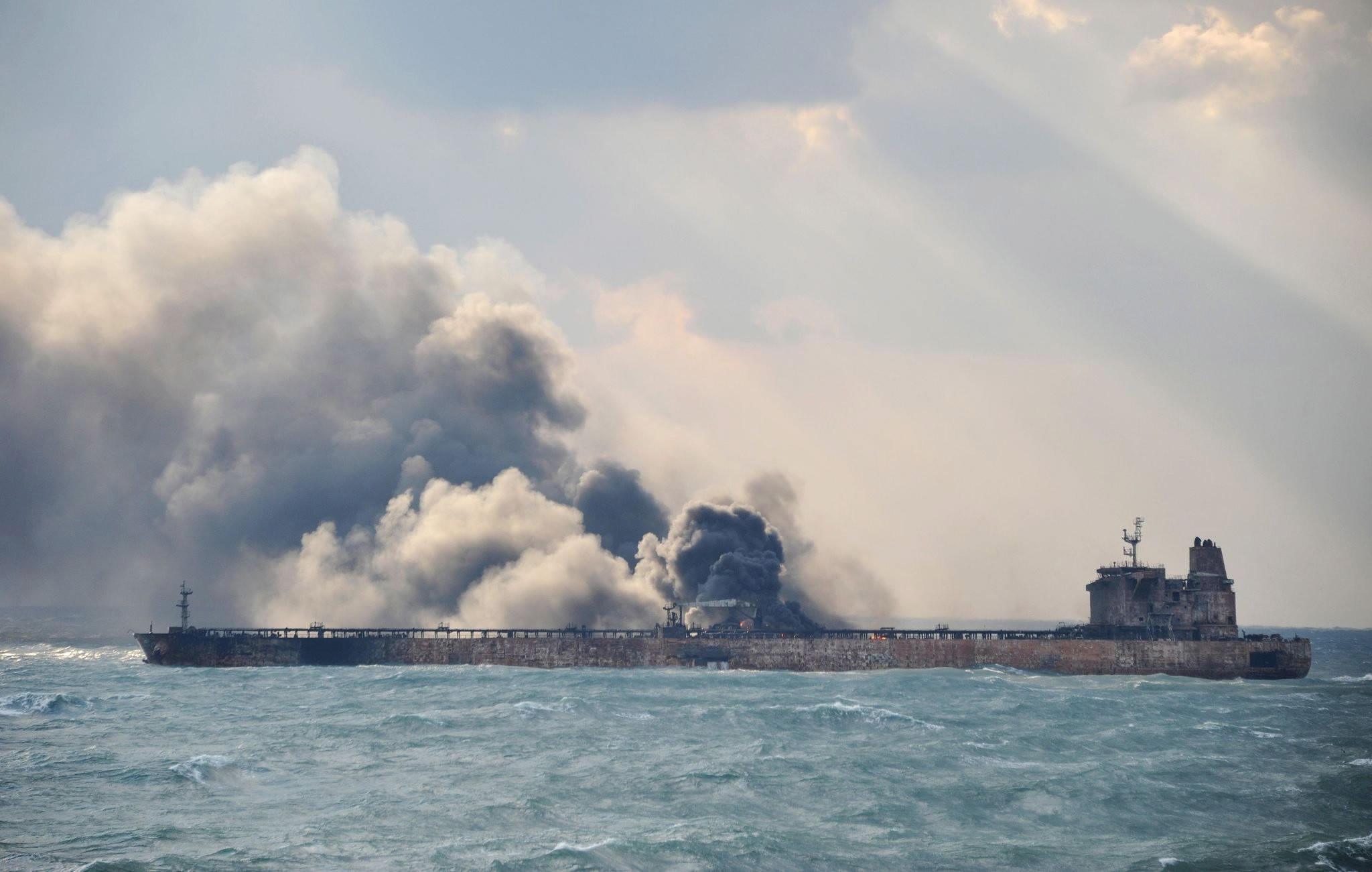
World
19:55, 17-Jan-2018
What does the Sanchi oil spill mean for the environment?
By Terrence Terashima

Concerns have been raised about what impact the sinking of an oil tanker off the coast of eastern China on Sunday will have on the marine ecosystem.
Authorities say the oil spill spanned over 20 kilometers, and was as much as 11 kilometers wide in some areas. It spread over some of essential sea-lanes and pathways for marine mammals.
The Iranian vessel, Sanchi, had been carrying 136,000 tons of condensate, a highly flammable crude oil, which set the ship ablaze when it collided with the CF Cristal freighter on Jan. 6.

Smoke and flames come from the burning oil tanker "Sanchi" at sea off the coast of eastern China, Jan. 9, 2018. /VCG Photo
Smoke and flames come from the burning oil tanker "Sanchi" at sea off the coast of eastern China, Jan. 9, 2018. /VCG Photo
The collision took place about 160 nautical miles east of Shanghai, in an area where ships travel to and from the Chinese mainland, Taiwan, South Korea and Japan.
Despite international efforts led by China, no survivors were found and the blazing tanker drifted southwards towards Japan’s exclusive economic zone.
After drifting for a week, Sanchi went underwater 315 kilometers west of Amami-Oshima island.
Clean-up and containment efforts are said to have been difficult due the wide area of oil spill. Environmental experts raised alarms that the rich marine ecosystem, which is home to various kinds of squids, whales and seabirds, could be severely damaged.
"Condensate is highly volatile and evaporates easily, but regardless of the types of oil, the impact to the wildlife is the same,” said Capt. Shin Ohnuki, general manager for the Japanese Association of Marine Safety..
"Even an amount of oil the size of a coin can be life threatening to seabirds. Unlike heavy oil, semi-transparent condensate makes it difficult to see the extent of the damage to the wild life”, Ohnuki said.
Condensate spills differ from other oil spills, as the substance is toxic and volatile. Because of its volatility, much of them will evaporate with time.
Compared to crude and heavy oil, it is less likely to leave large oil slick on the coasts and sea beds in the coastal areas, but its toxicity is threatening to the wildlife nonetheless.
The Japanese coast guard continues to monitor the surrounding waters and assess the extent of the spill and damage to the wild life.

SITEMAP
Copyright © 2018 CGTN. Beijing ICP prepared NO.16065310-3
Copyright © 2018 CGTN. Beijing ICP prepared NO.16065310-3